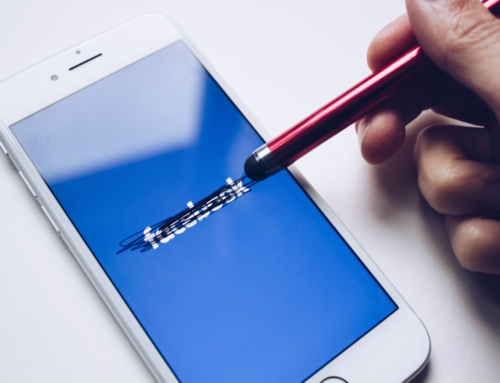Back in the first days of my own quarantime (it’s a word now), which was early March (actually, on my birthday!), I read an Instagram post from the “Run Like Clockwork” folks: they said they started asking their team through every client-facing decision now:
And even though they’re two different tools – used for two different things, I understood their analogy.
Loom noticed a huge uptick in usage and saw the new emergent need to share video recordings, teachings, and knowledge via video.
Early on, within the first week of “work from home” for most folks, they lowered their monthly fee, they bulked up the free plan, AND they’re giving their Pro features to teachers and educators for free.
Now that’s a response worth paying attention to.
Zoom, on the other hand, didn’t do a thing.
Well, they did put out some “resources” for folks just starting to work from home. But they didn’t do much to help with folks needing new paid accounts, and they didn’t do what we thought they would, and make their free room “unlimited time” during meetings with more than two people.
We get it, but some people right now cannot afford the $15 USD a month to keep a paid zoom. I have heard from a few folks that if you reach out or call them, they will do anything from comp your account up to 90-days to offer half pricing, but I have not personally experienced this – I do think it’s worth a try.
Personally, I secretly wished they had done something – anything, faster – because I have always had a great love of Zoom. I wished they were more like “Loom”.
Instead, to the world, what happened, is Zoom got real popular real fast.
And then the “skeletons” emerged.

Here’s where you may ask: what’s the hubbub about?
First, people can be jerks. We know that. And those jerks started popping in to zoom rooms and “zoombombing”. Not a lot, but enough. They were also stealing people’s Zoom room numbers. Basically, Zoom was hacked.
What’s also important here is that what happened in tandem with hacking exploits: it was uncovered that the privacy policy and data collection that Zoom seems to be doing on the back end was not what they said. It’s the exact reason people cringe at Google and Facebook’s policies: they were not as “for the consumer” as they purported themselves to be. They are now quickly pivoting and updating and responding. (You can check out their updated policy here).
Zoom has been very upfront with journalists and inquiries, and their recent statement is what gives us even more hope:
“Over the next 90 days, we are committed to dedicating the resources needed to better identify, address, and fix issues proactively,” Zoom founder and CEO Eric S. Yuan said in a blog. “We are also committed to being transparent throughout this process. We want to do what it takes to maintain your trust.”
We’re pretty pleased with this response, and the fact that these whistleblowers who came out of the woodwork have now caused Zoom to take quick, pointed action to fix their underlying security and privacy issues.
There are other choices out there. This does not mean that these other platforms are/will remain more secure than Zoom, and keep your privacy foremost, but they do a slightly better job, with fewer features and ease of use, which is good news for those in medical and financial fields.
If you find yourself concerned, we would highly recommend Webex as a pretty linear user experience. They currently have special pricing that has been discounted (their free plan looks great), and now is the time to switch if you feel compelled to do so.
If you’d like to see what other experts think about the main video hosting platforms people are turning to, click here.
As the above article states: it’s important you (your company), need to have a solid understanding of what internal security needs are in order to make an informed decision.
I’ll add one more to that: and that the platform jives with your core values, as well.
While we were disappointed in Zoom’s lack of support initially, we’re super pleased at their response, transparency, and pivoting to secure and give us the best conference tech they can.
That, my friends, is one of our core values: see what you did wrong, acknowledge, and pivot forward.
If you have any questions, please feel free to leave a comment!
Till next time (maybe on the next full moon?)
~Jillian
(And Katy!)
P.S: We’ve chosen to keep with zoom for a few reasons:
- If you adjust your settings, they’re actually secure enough for our purposes (ask me if you need help adjusting your settings by replying to this email)
- We still find them the most stable (even in the last few weeks), and we see no reason to not just adjust our settings and stick with them after
- They’ve already sent out 2 updates within the last four days – more than most other apps out there.
- We’ve been with them for 4+ years
- We love “virtual backgrounds” (next call, have everyone wear a green shirt like the Queen: https://nypost.com/2020/04/07/queen-elizabeth-dresses-up-as-a-punk-rocker-trekkie-and-more/
- We just haven’t found anything else we love as much as for video conferencing
- We’re too curious, we want to see how their new initiatives and changes and support features play out
- Webex has has their own hacked system, as recently as October 2019, with a less than fast response from Cisco. So ultimately, we know when we use these tools, we’re never completely “safe” – so we use best practices and pay attention to what’s going on. Reference to Webex hack here
P.P.S: TL; DR – Zoom actually is concerned with your privacy and we expect more is coming. This is an update from their representative on 3/27/20:
“Zoom takes its users’ privacy extremely seriously,” a spokesperson told me via email. “Zoom only collects data from individuals using the Zoom platform as needed to provide the service and ensure it is delivered as effectively as possible. Zoom must collect basic technical information like users’ IP address, OS details and device details in order for the service to function properly.
“Zoom has layered safeguards in place to protect our users’ privacy, which includes preventing anyone, including Zoom employees, from directly accessing any data that users share during meetings, including – but not limited to – the video, audio and chat content of those meetings. Importantly, Zoom does not mine user data or sell user data of any kind to anyone.”
P.P.P.S: Katy and Jillian are healthy, isolating and social distancing, and their families so far are doing well and keeping healthy. We wanted to let you know, we know some of you, like us, are worriers. If you want to give us a “hello from more than six feet away” please leave a comment and do so!








